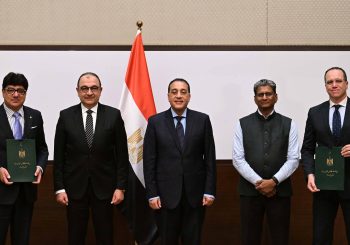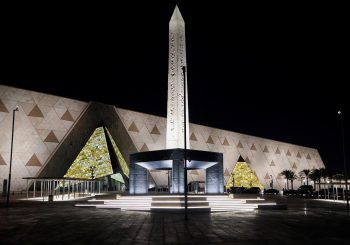By Maha AbdelAzim
Rappers Jay-Z and Timbaland testified in a Los Angeles federal court on Wednesday over charges that they had illegally sampled the work of Egyptian composer Baligh Hamdy in their 1999 hit, “Big Pimpin’.”
Osama Fahmy, Hamdy’s nephew and the inheritor of the copyrights interest, raised the lawsuit in 2007 and claimed that the rappers sampled the 1960s song “Khosara Khosara” – famously sung by Abdel Halim Hafez – without the permission of the author’s family, which has the exclusive rights to grant the required license.
Jay-Z and Timbaland, whose real names are Shawn Carter and Timothy Mosley, admitted to using Hamdy’s melody in their song but claim they got the rights to play the melody from the record label EMI Music Arabia for the rights to play the song anywhere outside Egypt.
Timbaland, who produced “Big Pimpin’,” first used Hamdy’s melody based on the belief that it was in the public domain and could be used freely without licensing. Upon finding out this was not the case, he paid $100,000 to the record label EMI Music Arabia for the rights to play the song anywhere outside Egypt.
The rappers therefore claimed that Fahmy was only looking for “undeserved income” by raising the lawsuit.
However, the lawsuit is based on the legal distinction between economic rights – an author’s right to receive financial compensation for the use of their works – and moral rights. These are an author’s right to preserve their moral bond with their work by approving or denying any potential derivatives or modifications to it by other authors, even those who have acquired economic rights.
Moral rights are clearly recognized under Egyptian law, though much less so under US law.
While the lawsuit also claims that EMI Arabia did not have the right to sublicense the song for use by the defendants, it also relies heavily on the concept of moral rights. Fahmy claims that Hamdy’s family has the exclusive right to approve the particular derivative of the song used in “Big Pimpin’.”
Fahmy’s lawyer also claims that the defendants deliberately avoided requesting this approval, knowing that it would be rejected due to the “vulgar” and “disgusting” lyrics of the song.
However, since the legal debate is the authors’ rights themselves and not how they would have been used, the lyrics themselves are irrelevant and will not be considered in the trial as they could potentially prejudice the jury against the defendants.
Jay-Z, who is famously married to singer Beyoncé Knowles, also previously requested to keep his wealth – an estimated $560 million – out of the trial proceedings to avoid a biased jury.







Comments (3)
[…] In an interesting court case that has dragged on since 2007, two of America’s most famous 90’s hip hop artists, Shawn Carter and Timothy Mosley – alias Jay-Z and Timbaland – testified in a U.S. court on Tuesday of last week. […]
[…] out this article for more information on the […]